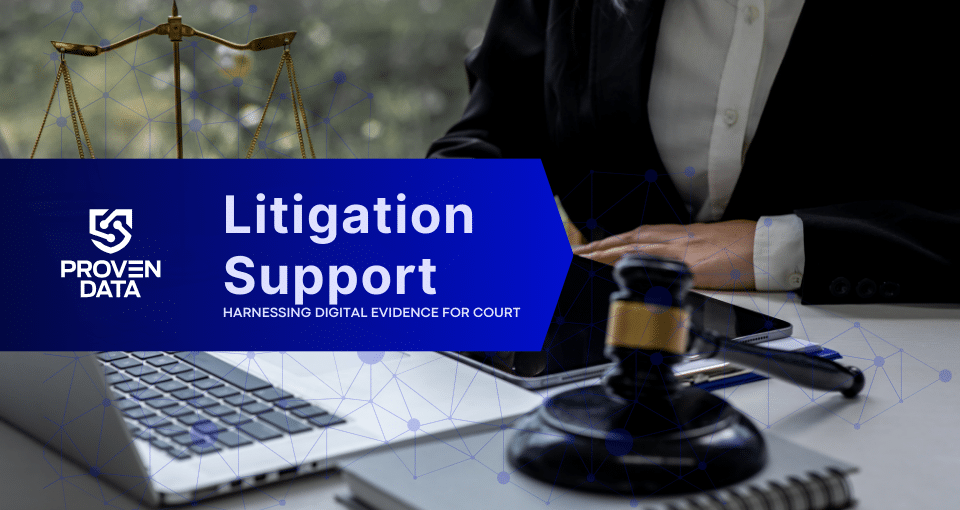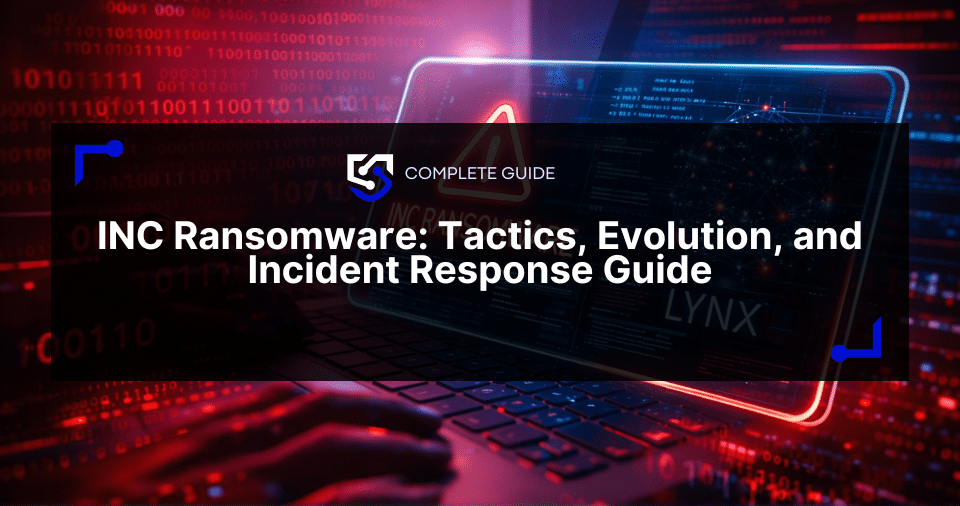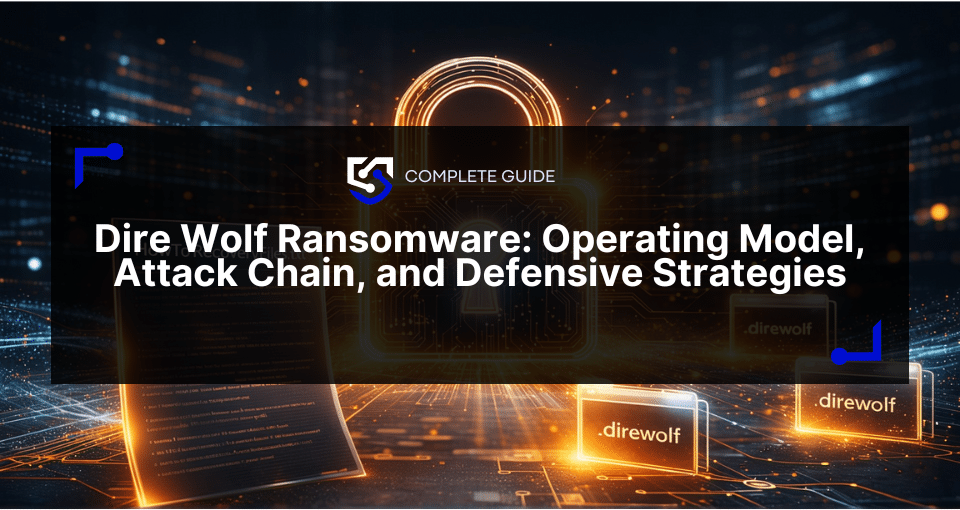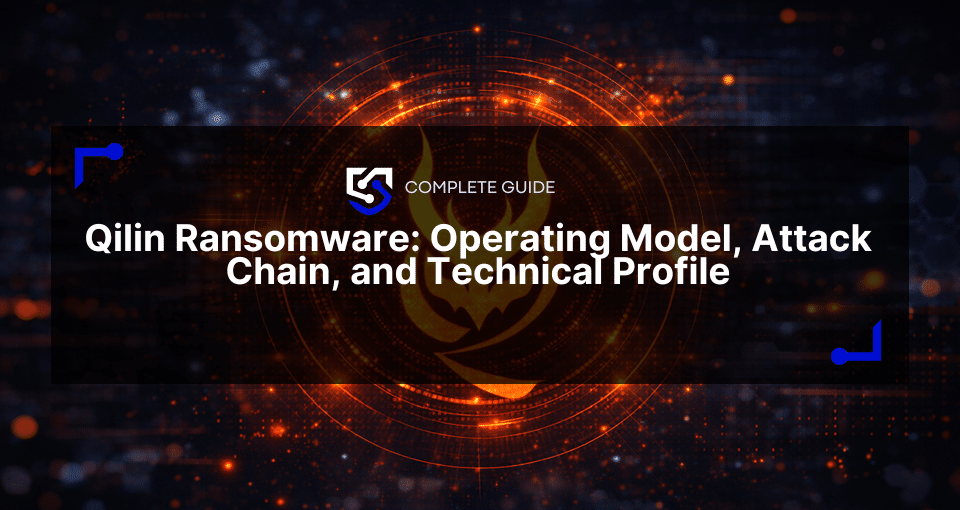With the growing influence of mobile devices, computers, audio, and video files, there is a need not only for analysis to find digital evidence but also for building a litigation strategy to present this evidence. Litigation support is a specialized service designed to help legal professionals manage, analyze, and present electronic evidence in court proceedings. It combines legal expertise, technical proficiency, litigation strategy, and project management to help legal teams navigate the complexities of electronic evidence.
Understanding the purpose of litigation support is critical for determining when to utilize these services.
Why do you need litigation support?
The exponential growth of digital information has transformed how legal cases are handled. Every email, text message, social media post, or digital document could be crucial evidence in a legal proceeding.
Pro tip: There’s a specific protocol for downloading emails for forensic investigations that preserve evidence for court.
Cost savings
Organizations encounter numerous challenges during legal disputes, including managing extensive electronic data, preserving digital evidence, adhering to strict deadlines, maintaining the chain of custody, and controlling litigation expenses. However, litigation support services often lead to significant cost savings through:
- Reduced attorney review time;
- More efficient document production;
- Better early case assessment;
- Decreased risk of sanctions for spoliation;
- Improved litigation outcomes.
Preservation of vital evidence
A recurring hurdle our experts often see is that opposing parties will attempt to exclude vital data from analysis by citing user privacy, HIPAA, clergy confidentiality, or work product liability protections.
Here’s how digital forensics helps attorneys:
- Counter improper data exclusion attempts while respecting legitimate privacy/privilege boundaries.
- Preserve critical evidence that might otherwise be excluded under HIPAA or clergy confidentiality claims.
- Navigate work product liability challenges to ensure key documents remain discoverable.
- Establish forensic protocols that maintain evidentiary integrity against chain-of-custody challenges.
In summary, professional litigation support services address these challenges by providing structured approaches to managing electronically stored information (ESI) while ensuring legal compliance, especially in high-stakes scenarios where data exclusion tactics could impact case outcomes.
When do organizations need litigation support
Businesses and organizations will need litigation support during investigations (criminal or not) to prove compliance or diligence processes and collect and verify information to ensure the legitimacy of the data.
Recognizing the appropriate moments to utilize litigation support services is vital for successful case management.
Internal investigations
During internal investigations, litigation support professionals use forensic techniques to track access patterns in cloud storage and review USB drive activity logs. This dual-focused approach enables organizations to identify unauthorized data transfers across both modern cloud platforms and physical storage devices, ensuring that evidentiary integrity is maintained throughout the investigation process.
Civil litigation support
From commercial disputes to employment litigation, forensic specialists help attorneys dissect email threads, collaboration tool histories, and file transfer patterns to build persuasive timelines. This includes identifying exculpatory evidence in Slack message metadata or OneDrive version histories that could sway settlements or verdicts.
Criminal defense support
In cases involving alleged data breaches or financial crimes, specialists analyze device connection logs and cloud API calls to either corroborate or challenge accusations of intentional misconduct. This digital reconstruction helps defense teams prove authorized access patterns or identify alternative explanations for data movements.
How litigation support services work
Modern litigation support combines cutting-edge forensic tools with human expertise to ensure legally defensible outcomes. While AI has gained attention, Proven Data’s approach prioritizes trained analysts with dual competencies in digital forensics and legal compliance, enabling them to navigate evidentiary challenges effectively.
Experienced professionals conduct manual verification of digital fingerprints (hash values, metadata timestamps) to authenticate evidence beyond AI’s pattern-matching capabilities. Meanwhile, analysts cross-reference findings with jurisdictional requirements, ensuring chain-of-custody documentation meets local evidentiary standards.
Understanding these capabilities helps organizations make informed decisions about their litigation support needs.
Digital forensics tools
Digital forensics tools are specialized software and hardware solutions designed to investigate and analyze electronic data while maintaining legal admissibility. Unlike regular copying or backup software, forensics tools create “write-blocked” connections to devices, ensuring that the original data remains completely untouched during examination.
Think of digital forensics tools as the equivalent of crime scene investigation equipment for electronic evidence. Just as CSI teams use specialized tools to collect physical evidence without contamination, digital forensics tools allow investigators to:
- Create exact copies of digital devices without altering the original – known as “forensic images” or “bit-by-bit copies.”
- Recover deleted files by examining unallocated space on storage devices.
- Extract and analyze metadata (hidden information about files) such as creation dates, modification times, and user access patterns.
- Maintain detailed audit trails that document every step of the investigation process, ensuring defensibility in court.
Common forensics tools in litigation support include Cellebrite for mobile device analysis, EnCase for computer forensics, and Magnet AXIOM for comprehensive digital investigations.
Database management systems
Litigation database management systems are specialized platforms designed specifically for legal document review and analysis. Unlike traditional databases, these systems are built to handle the unique requirements of legal discovery, including maintaining document families (related documents like email threads), tracking privilege claims, and managing multiple levels of review.
These systems are the central hub where legal teams collaborate on document review and analysis. Modern litigation databases provide:
- Full-text searching capabilities that go beyond simple keyword matching to include proximity searches, fuzzy logic, and conceptual searching.
- Metadata filtering allows teams to sort and analyze documents based on properties like date ranges, file types, authors, and recipients.
- Document categorization features help organize millions of documents into manageable sets for review.
- Privilege logging functionality to track and document claims of attorney-client privilege or work product protection.
- Production tracking systems that ensure all documents are properly processed and produced for opposing parties.
Popular platforms include Relativity, Concordance, and IPRO. Each offers different features suited to various types of litigation.
The E-discovery process
Managing electronically stored information (ESI) is a key component of litigation support within the framework of the e-discovery process. This includes identifying, collecting, preserving, analyzing, and producing electronic evidence in legal proceedings.
E-discovery, short for electronic discovery, forms the core of modern litigation support. It follows a specific workflow that typically includes several key stages: identification, preservation, collection, processing, review, analysis, and production of electronically stored information (ESI). Here’s the breakdown of each one:
Identification
Before any collection begins, legal teams must identify potential sources of relevant information. This could include:
- Corporate email systems
- Cloud storage platforms
- Mobile devices
- Social media accounts
- Internal messaging platforms (e.g., Slack or Microsoft Teams)
- Database systems
- Network drives
Preservation
Once potential evidence sources are identified, steps must be taken to preserve this information. This involves implementing legal holds, which require organizations to maintain records that might be relevant to anticipated or ongoing litigation. This can also be done remotely, at the client’s convenience, or if they don’t have access to the device.
Collection
Litigation support professionals collect electronic evidence using specialized forensics tools like Cellebrite, Magnet Axiom, and EnCase while maintaining its integrity. This process must follow strict protocols to ensure the evidence remains admissible in court.
Forensic data validation
Digital forensics specialized services authenticate digital evidence through file signature verification and hexadecimal analysis while mapping data relationships to case narratives. Communication metadata, file version histories, and access logs undergo scrutiny to establish evidentiary relevance, with cryptographic techniques preserving chain-of-custody integrity throughout the examination process.
Review
Legal teams review processed data to identify relevant documents, privilege issues, and key evidence. Litigation support professionals assist by:
- Setting up review platforms
- Creating efficient workflows
- Implementing search strategies
- Managing quality control
Production
In the final step, relevant documents are produced for other parties in the format specified by the court or agreed upon by the parties.
Choosing a litigation support service
Whether facing litigation, conducting internal investigations, or responding to regulatory inquiries, professional litigation support services can help organizations navigate the complexities of electronic evidence while controlling costs and maintaining legal compliance.
When selecting a litigation support provider, organizations should consider their experience with similar cases, technical capabilities, security protocols, and ability to scale services as needed. The right provider will be a true partner in managing legal data challenges, enabling legal teams to focus on strategy and advocacy rather than technical details.
Proven Data offers comprehensive eDiscovery services and litigation support for businesses and organizations, which include digital evidence collection, legal data forensics, email forensics, mobile, computer, audio, video, and metadata forensics.




